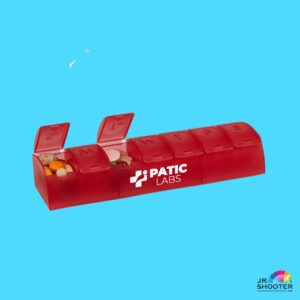Choosing useful and responsible promotional items is crucial for making a lasting impact while demonstrating your commitment to sustainability. Here’s how you can select items that are both practical and environmentally friendly:
Practicality and Usefulness
First and foremost, ensure the promotional items you choose are practical and useful to your target audience. Items that people can use daily, such as tote bags, water bottles, and reusable coffee cups, are more likely to be appreciated and used. This not only increases brand visibility but also ensures that your investment is worthwhile.
Sustainability Matters
Opt for eco-friendly materials. Items made from recycled, biodegradable, or sustainably sourced materials showcase your brand’s commitment to the environment. For example, bamboo products, recycled paper notebooks, and organic cotton tote bags are excellent choices. These items reduce environmental impact and resonate well with eco-conscious consumers.
Quality Over Quantity
Spend your money on things that will make a good impression on customers. While cheaper products might save money initially, they often wear out quickly, leading to a negative impression. Durable, well-made items demonstrate that your brand values quality and sustainability.
Reusability is Key
Choose items that encourage reusability. For instance, reusable shopping bags, stainless steel straws, and silicone food storage bags help reduce single-use plastic waste. These items align with the growing consumer trend toward sustainable living.
Thoughtful Branding
Ensure your branding on promotional items is tasteful and not overpowering. Subtle, well-placed logos can enhance the item’s aesthetic appeal, making it more likely that recipients will use and appreciate it. Avoid excessive branding that might deter people from using the item.
Local and Ethical Sourcing
Consider sourcing items locally or from companies that adhere to fair trade practices. This supports local economies and ensures that the products are made under ethical working conditions. Additionally, locally sourced items typically have a smaller carbon footprint.
Versatility and Broad Appeal
Select items with broad appeal that can be used by a wide audience. For example, notebooks, pens, and phone accessories are universally useful. Versatile items are more likely to be used regularly, increasing the visibility of your brand.
Packaging and Presentation
Opt for minimal and eco-friendly packaging. Excessive packaging can negate the positive impact of a sustainable promotional item. Recyclable or compostable packaging materials are the best choices. Additionally, a well-presented item can enhance the recipient’s experience and leave a lasting positive impression.
Educational Value
Consider including items that promote awareness about sustainability. For instance, seed paper bookmarks or plantable pencils can educate recipients about environmental conservation while being practical and fun to use.
Staff Appreciation
Finding the perfect appreciation gift for employees can make a big difference in workplace morale and satisfaction. Instead of opting for generic items, consider personalized gifts that show you know and value your employees as individuals. Think about their hobbies, interests, or needs. For example, a high-quality water bottle for someone who loves outdoor activities, a custom notebook for a keen writer, or a gift card to their favorite coffee shop. Additionally, experiences like a day off, tickets to a concert, or a team-building activity can be memorable and cherished. By putting thought into the gifts, you not only show appreciation but also strengthen the bond within your team.
Feedback and Adaptation
Finally, gather feedback from your recipients to understand which items are most appreciated and used. Use this feedback to adapt your future promotional strategies, ensuring that you continue to meet the needs and preferences of your audience.
By selecting useful and responsible promotional items, you can create a positive impression, foster brand loyalty, and demonstrate your commitment to sustainability.


